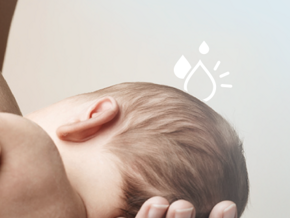
Pregnancy Planning - 11 baby-ready questions to ask
When preparing for a pregnancy, schedule an appointment with your healthcare professional to discuss your plans, then fill out this pregnancy planning checklist and take it with you.
Preparing for a pregnancy can be overwhelming as there is a lot to consider. Once you’ve asked yourself “am I ready for a baby?” and you’ve made the exciting decision to start trying, the next step is to think about your own health and everything involved in preparing for a baby. If you need to, there are lots of small changes you can make to your daily life to help maximise your chances of conceiving and reduce your risk of pregnancy complications, including quitting smoking and striving for a healthy weight. You might also like to consider the emotional aspects of preparing for parenthood ahead of time. With any pre pregnancy planning, it’s also important to talk to your healthcare professional about any current health problems and medications you’re taking, as well as any family history of illness. They will be able to tell you whether you need to make further changes as part of your pre pregnancy planning.
My preconception checklist
1. My current health problems:
Will these affect my pregnancy? Can I do anything about them as part of my pregnancy preparation before I conceive?
2. My current prescription medicines:
Are these safe to take while I’m trying to conceive? If not, what can I take instead?
3. My current over-the-counter/non-prescription medicines:
Are these safe to take while I’m trying to conceive? If not, what can I take instead?
4. Health problems that run in my family or my partner’s family:
Do I need to worry about these? Do I need any extra tests during the pregnancy planning stage? Or should I see a genetic counsellor?
5. Problems I had with previous pregnancy/pregnancies:
What can I do to reduce the risk of these problems happening again?
6. Supplements I’m currently taking:
Are these OK when I’m trying to conceive? Do I need to take folic acid or another nutritional supplement as part of my pregnancy preparation?
7. Number of units of alcohol I drink per week:
Is this safe? How can I cut down?
8. Vaccines/screenings I might need:
When is it safe to have these? How do I arrange them?
9. What social support is available to me if I feel I need it?
(Pre-pregnancy, during pregnancy, and during the first months)
10. How can I improve my overall health during the pregnancy planning stage?
Am I a healthy weight? If not, how can I strive to reach a healthy weight?
11. Smokers only: What support is available to help me quit smoking before preparing for a pregnancy?
Frequently asked questions about pregnancy planning
How to prepare for a pregnancy
To prepare for a pregnancy, there are a number of general factors you can start working on like maintaining a healthy weight, eating a balanced diet, and exercising regularly including starting some exercises that you can continue throughout your pregnancy. In addition, quitting smoking and alcohol, and limiting excessive caffeine and high risk activities are also important. For more personalised advice on vitamin and mineral supplementation and other dietary, medication or exercise advice, you should make an appointment with your healthcare professional or fertility expert.
How long before pregnancy should you prepare?
It is generally recommended to start preparing for pregnancy about three to six months before trying to conceive. This allows time to make lifestyle adjustments, such as improving diet, taking prenatal vitamins, and ensuring overall health and well-being before becoming pregnant.
How can I increase my chances of getting pregnant?
To increase your chances of getting pregnant, consider tracking your menstrual cycle, maintaining a healthy weight, eating a balanced diet, and ask your doctor about taking prenatal vitamins. In addition, as part of your pregnancy planning you should stop drinking alcohol, stop smoking, and avoid excessive caffeine. Aim for regular physical activity, manage your stress levels, and consult a healthcare professional or fertility specialist for personalised advice.
Do and don'ts while planning for pregnancy
The list of do’s and don’ts will vary between individuals so it’s important to seek healthcare professional advice as part of your pre pregnancy planning. As a general rule when preparing for a pregnancy, you should maintain a healthy weight, eat a balanced diet and stay hydrated, track your menstrual cycle to identify fertile days, and start a prenatal supplement. Additionally, you should stop smoking and drinking alcohol, avoid excessive caffeine intake, high-risk activities that could lead to injury, and environmental toxins and hazardous substances.
Related articles













